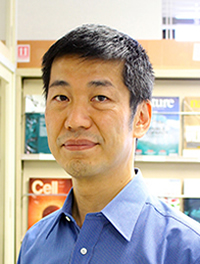
 About Us
About Us
 Welcome to CREST/IHEC, International Human Epigenome Consortium, IHEC, Team Japan (supported by AMED-CREST)
Welcome to CREST/IHEC, International Human Epigenome Consortium, IHEC, Team Japan (supported by AMED-CREST)
We are producing reference epigenomes of human gastrointestinal epithelial cells, vascular endothelial cells, and cells of reproductive organs. We are supported by a CREST program "Disease Epigenome" of Japan Agency for Medical Research and Development (AMED), and are a member of the International Human Epigenome Consortium (IHEC).
The CREST program was launched under the strategic sector from the Ministry of Education, Science, Culture, and Sport, Japan (MEXT) "Creation of the basic technologies for disease analysis and elucidation of stem cell differentiation mechanisms by using epigenomic comparison toward the realization of treatments and regenerative medicine used to prevent, diagnose, and treat diseases". Taking advantage of epigenome analysis, research teams in this CREST program aim to establish novel diagnostic and therapeutic strategies for various disorders, to establish novel concept in differentiation and reprogramming, and to produce novel methods for epigenome analysis.
 About CREST and CREST "Disease Epigenome":
About CREST and CREST "Disease Epigenome":
CREST stands for "Core Research for Evolutional Science and Technology", and is supported by AMED. Among the various programs supported by AMED-CREST is a funding program for team-oriented research with aim of achieving the strategic goals set forth by the government of Japan.
The new CREST research program "Development of Fundamental Technologies for Diagnosis and Therapy Based upon Epigenome Analysis (Disease Epigenome)" started in 2011, and is composed of Type A and Type B projects. Type A projects aim at individual research goals with a budget of 1-3 M USD over six years. Three type B projects aim at establishing reference epigenomes as a member of the IHEC and also addressing related scientific issues with a budget of 3-5 M USD over six years. This program continues for eight years, and will invest over 50 M USD as a total of Type A and B projects.
Type A projects in CREST "Disease Epigenome"
“Research teams aiming to clarify the mechanism of biological phenomenon and disease, which targets specific diseases, stem cell or cell differentiation and combine the epigenome research and functional analysis approach.”
Type B projects in CREST "Disease Epigenome" (IHEC team Japan, CREST/IHEC)
“Research teams aiming to conduct the standard epigenome analysis on a large scale to contribute the International Human Epigenome Consortium (IHEC.)”
 Research Supervisor in CREST "Disease Epigenome"
Research Supervisor in CREST "Disease Epigenome"
Research Supervisor:
Masayuki YAMAMOTO
Dean / Professor, Tohoku University

Deputy Research Supervisor:
Toshikazu USHIJIMA
Senior deputy director, National Cancer Center Research Institute







